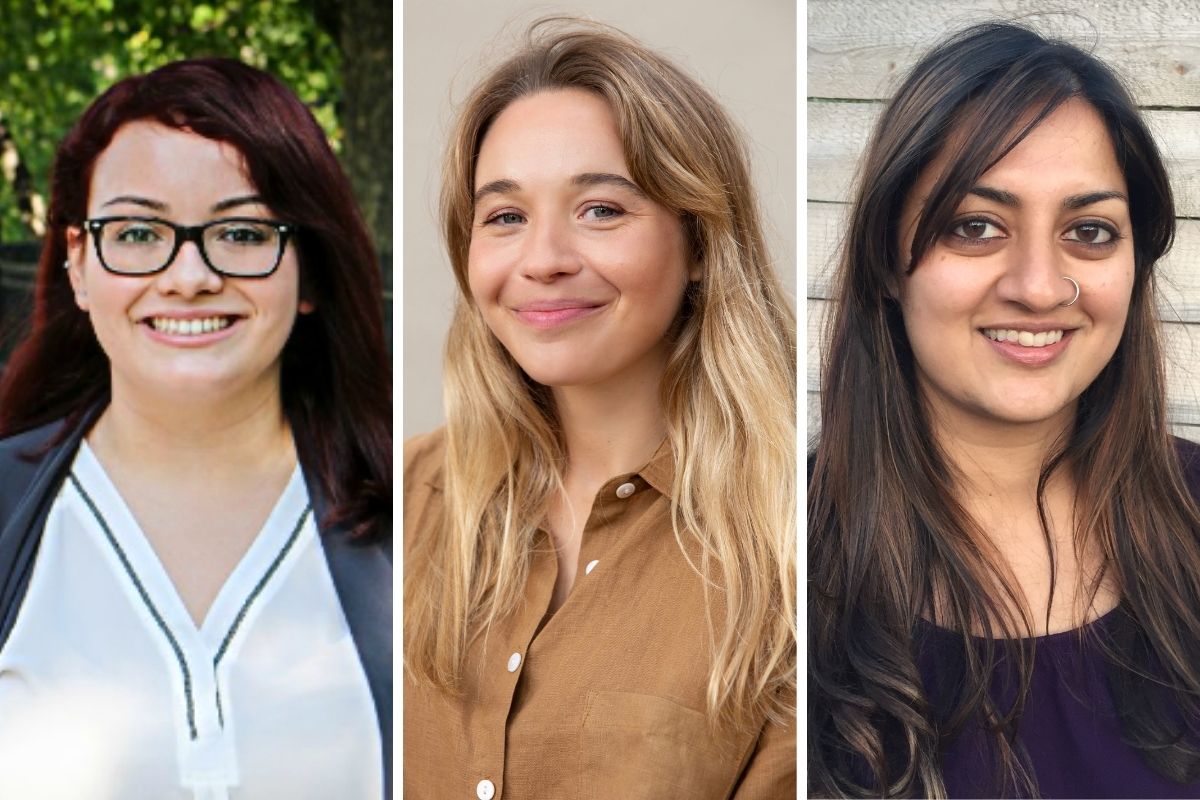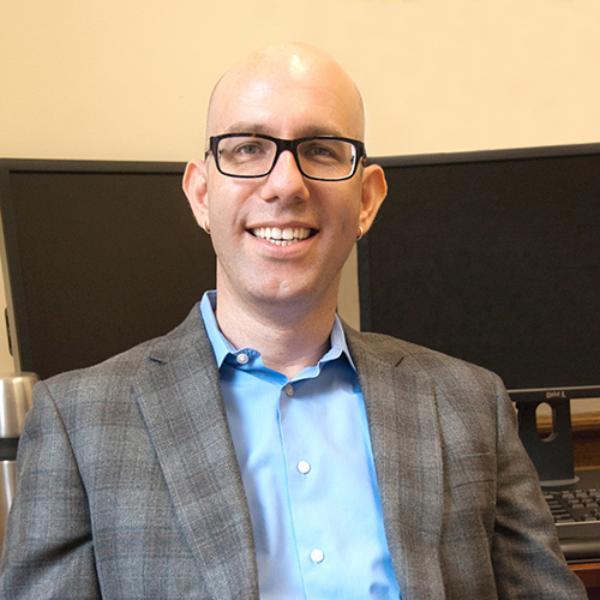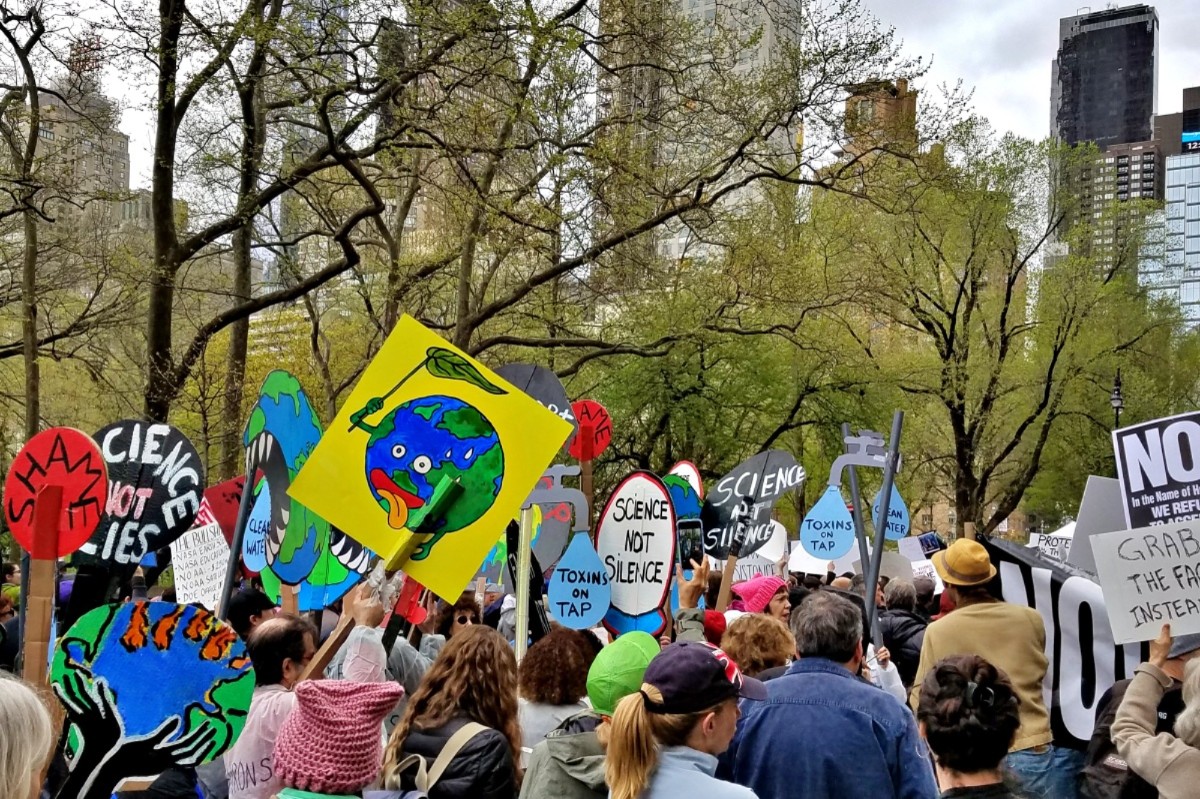Christina Torres, Lyndsay Gehring and Raksha Vasudevan infuse Youth at the Center, a Center for Sustainable Futures (CSF) initiative, with a range of talent valued by a program that prioritizes interdisciplinary studies to prioritize climate change in the context of education research and practice.
But in terms of motivation, the three students are united.
“Climate change is the most pressing, existential issue of our generation and youth are not happy with the way past generations have responded,” said Gehring, a second-year Master's candidate in the International Education Development Program.

Pictured from left to right: Christina Torres (doctoral candidate, Science Education); Lyndsay Gehring (master's candidate, International Education Development); and the Bruce S. Goldberg Postdoctoral Fellow Raksha Vasudevan (Comparative & International Education). (Photos: TC Archives)
Her CSF colleagues nodding in assent, Gehring continued, “And it won't get any better if we don't do something at this moment. Climate change is intersectional. It has no boundaries. It will disproportionately affect the disadvantaged, people of color and every social movement. And it is now our responsibility.”
Founded seven years ago as the Teachers College Working Group on Environmental and Sustainability Education, the CSF became an official student-faculty research and initiative-driven entity in 2020.
Under the direction of Associate Professor of International & Transcultural Studies Oren Pizmony-Levy, CSF has since expanded TC research and curricula focus on sustainability issues, including climate change, actively participated in local, national and international environmental conferences, fostered and published research, and advocated for sustainable practices in New York public schools and beyond.

Oren Pizmony-Levy, Director of the Center for Sustainable Futures and Associate Professor of International and Comparative Education. (Photo: TC Archives)
The Youth at the Center initiative coordinated by Gehring, Torres, and Vasudevan has meanwhile amplified the voices of 20 New York City middle school students in the global effort to address the outcomes of climate change.
In the project's first year, 2020-21, the students were briefed by climate change experts and activists who helped them develop and implement climate activism in their own schools and communities.
Channeling activism into storytelling is the focus of year two.
“We're looking at activism through a storytelling lens by creating a virtual repository of stories of how New York City public school students engage with climate change,” said Torres. “We hope the project will elevate voices that aren't normally heard and inspire further activism within the movement.”
The project in its initial phases has emphasized that climate change is a prism with a reach beyond the parameters of science.
“We are responding to the fact that this is how young people think about the climate movement,” said Vasudevan, a post-doctoral fellow in the Comparative & International Education Program. “When young people talk about climate justice, it is intersectional because it affects every aspect of their lives. It envelops being a good neighbor, taking care of the planet and their families. And it makes perfect sense for us because (CSF) believes in interdisciplinarity as a means to address climate change issues.”
An ecologist and doctoral candidate in Science Education, Torres appreciates the urgency for climate studies to extend beyond her field of expertise.

A painting by Youth at the Center participant Charlotte Stefano, who describes her work as an abstract debiction of the pollution of nature. “I purposely went with an abstract, symbolic piece because it allows the viewer to use their imagination and picture what they want to,” explained Stefano, whose work appeared in the program's yearly showcase in 2021. “As I was making my project, I was thinking about all I had learned in this group. It really was an inspiration and it is the reason I am so proud of this artwork." (Photo courtesy of the Center for Sustainable Futures)
Torres is encouraged that Youth at the Center sense the urgency as well. “Massive interdisciplinary problems need interdisciplinary solutions,” she said. “Our students already know this. They are asking the questions of their teachers, they are asking us questions and challenging us to think bigger and to think more interdisciplinary. They are asking why they aren't talking about climate change in other classes and why it is just a footnote in a science class. They want to know why education isn't connecting the dots they are connecting on their own.”
An ethnographer with an interest in spatial justice, youth geography and sustainability, Vasudevan's CSF work and research is supported by a Bruce S. Goldberg Post-doctoral Fellowship. Support for Torrez and Gehring comes from an Arthur Zankel Urban Fellowship.
Torres calls Youth at the Center an “ever-evolving program.” And one of mutual benefit to both the graduate students and a cohort of middle and high school students.
“One of the coolest things about what we are doing is that it feels as if we are always catching up with them,” said Torres. “Education is behind on the climate, for sure. But social sciences are also behind, it's not just education.”
